Composting is simply using Mother Nature’s recycling system to put back nutrients into the garden ecosystem.
Even though there’s a lot of composting advice out there, the process isn’t that complicated. It’s easier than you can imagine, plus you can do it anywhere you live.
Even if you’ve made some mistakes during the process, decomposition will occur. Simply dumping organic materials on the ground can do the trick. But doing that isn’t going to benefit your organic garden that much.
To ensure you don’t run into issues with your compost, avoid these 10 composting mistakes:
1. Not Composting
The first and biggest sin you can commit in your garden is not composting at all.
If you currently don’t compost organic material from your garden or food waste from your home, you should start immediately. There is a composting method for everyone, just that you have to put in some work to find out yours, then dive in.
Related: The Ultimate Guide To Composting
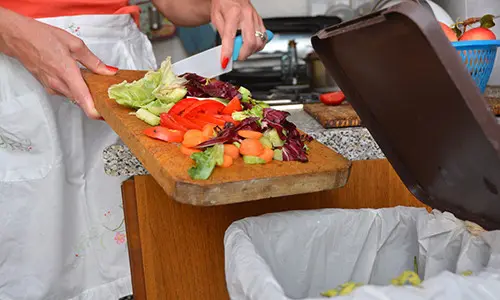
2. Choosing The Wrong Method
It doesn’t matter where you reside – or the situation you’re in, there is that composting method that is right for you.
What is vital here is thinking about the best method to use. If you have ample outside space, there are various methods you can consider.
- One or more cold-composting compost heaps.
- Cold compost containers or bins.
- A container for hot composting or an insulated bin or heap.
You can use your growing areas to compost materials, or otherwise use pits or trenches filled with organic matter.

If you have a small, large, or no garden at all, you might consider:
- Vermicomposting (composting using worms)
- A compost tumbler (using a tumbler to speed up the process.)
Choose the best method for where you reside and for your needs.
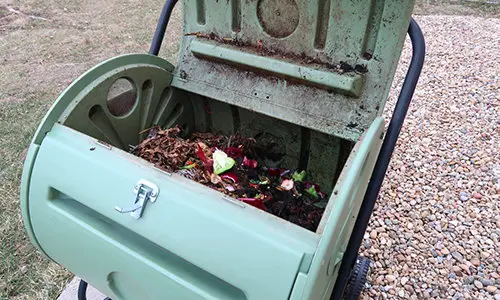
3. Not Thinking That Oxygen Is Mandatory
Most homes systems rely on anaerobic decomposition for composting, which requires oxygen. The creatures and micro-organisms in the compost heap also need to breathe.
An usual problem most people face with their composting systems is the stink. Often that’s because the mix is not receiving enough oxygen and has become anaerobic.
In vermicomposting, lack of oxygen can kill your worms – and in aerobic composting systems, poor aeration can be a problem.
To aerate your compost, the best step to take is to turn it. When you have a compost tumbler, you can use the garden fork to turn your heap manually.
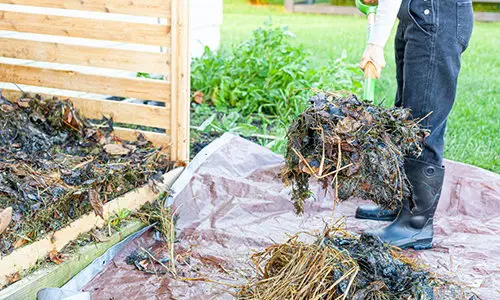
4. Adding Things That Can’t Break Down
There are many things people add to their compost that they shouldn’t.
Plastic is not biodegradable, so don’t add it to your heap. Sometimes people add it into their composting systems unknowingly.
For example, some people add contents from a vacuum cleaner or garbage into their systems. They don’t realize is that there are usually micro-plastics from synthetic carpets in there.
Another secret source of plastic that usually finds its way in your compost is teabags. Always ensure your teabags are plastic-free before tossing them into your heap.
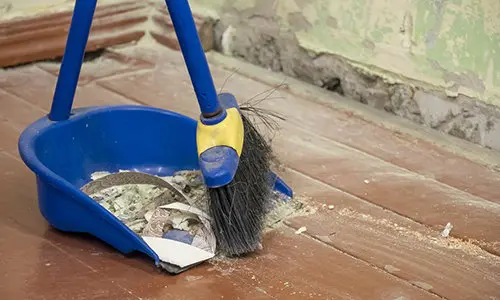
5. Putting Your Composting System In The Wrong Place
Putting your compost method in a proper place is vital.
A common mistake is hiding your compost spot behind a shed. People usually place their compost systems without gauging the proximity to growing areas, the environmental conditions of the site, or other parts of the garden. Before you choose a spot, ask yourself: Can my site provide the recommended water levels, temperatures, and other conditions for decomposition?
Think about the ease of transporting materials to the heap and delivering the finished compost to the final destination. Think also about the aesthetics of your composting area and how accessible from the growing section or your kitchen.
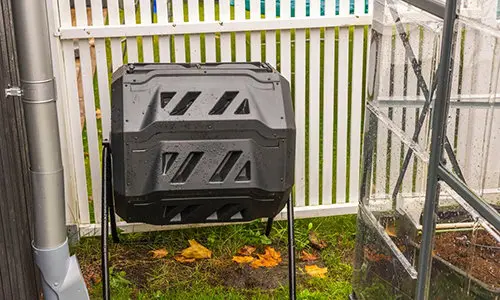
6. Adding Excess Nitrogen-Rich or Carbon-Rich Material
Adding too much nitrogen-rich or carbon-rich material at once can turn your heap anaerobic and cause it to stink.
Mix nitrogen-rich material (green leaves, fruit and vegetable waste, and grass clippings) with carbon-rich material (cardboard, wood shavings, and straw) to your compost to ensure it doesn’t stink.
Always ensure you balance these two elements to get optimum results.

7. Adding Hazardous Material to Your Compost
This may seem obvious, but you should ensure that environmentally polluting materials and harmful household cleaning products don’t slip their way into the compost.
A great example is humanure systems which recycle human waste. It might be tempting to do this, but composting humanure is a specialist process that requires ultra-high temperatures to ensure your kill all pathogens. So don’t try this at home without prior research.
You should also not add cat, dog, and other carnivore waste due to the risk of pathogens. You can add herbivore waste, such as rabbits, livestock, and chicken manures.
Related: 39 Items You Can Compost
8. Not Considering The NPK Balance
If you want to make super-nutritional compost, you should know the nutrient contents you’re adding to your heap.
Adding different materials allows you to maintain a good balance of potassium, phosphorus, and nitrogen. If you add a few ingredients to your compost – like excess grass clippings, it may not have the nutrient balance you desire.
The N-P-K ratio of compost is often from 1.5-0.5-1 to 3.5-1-2.

9. Not Thinking About Other Nutrients For Plant Health
Potassium, phosphorus, and nitrogen are vital components of plant nutrients, but they are not the only ones plants need to grow.
If you want to make super-nutritional compost, then you have to think of adding materials that, when they decompose, will release traces of other nutrients. When you know the nutrient composition of your compost, you can raise your game and become a top organic grower.
Diversifying dynamic accumulators in your heap is one way you can add different nutrients to your compost that you feel is lacking in parts of your garden.
10. Adding Diseased Plant Materials
Another mistake people make is adding plant materials with diseases into their heaps.
When weeding out a diseased plant, don’t add it to your composting system. Ensure you dispose of it far away from your compost and growing areas.
Another thing you should avoid is adding weeds or weed seeds into your system. When you add them, then after some time adds the compost to your garden, you’ll begin to see weeds popping up from everywhere. Be cautious about non-native and invasive species as well.
It’s pretty simple to avoid these 10 mistakes.
So if you want to start composting, you should start right now. There’s nothing much that goes into creating great compost, so stop sending your food to the dumpster, and start recycling them most ecologically.
You may also like:
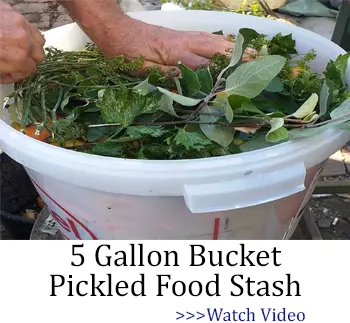 5 Mistakes To Avoid On Your Property
5 Mistakes To Avoid On Your Property
What Our Forefathers Did and Built Around the House (Video)
Are You A Community Member Or A Lone Wolf?
What I’ve Learned Homesteading With My Family of 8
Recipes I Made From The Lost Super Foods Book: Canned Hamburger Meat

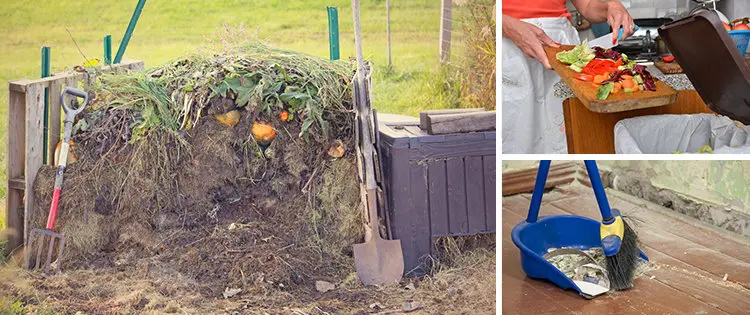








Should also state do not add meat. That can attract rats.
I also heard it can bring in bad things to the compost. I can’t remember if it is bacteria or what. I just remember it’s bad. Lol